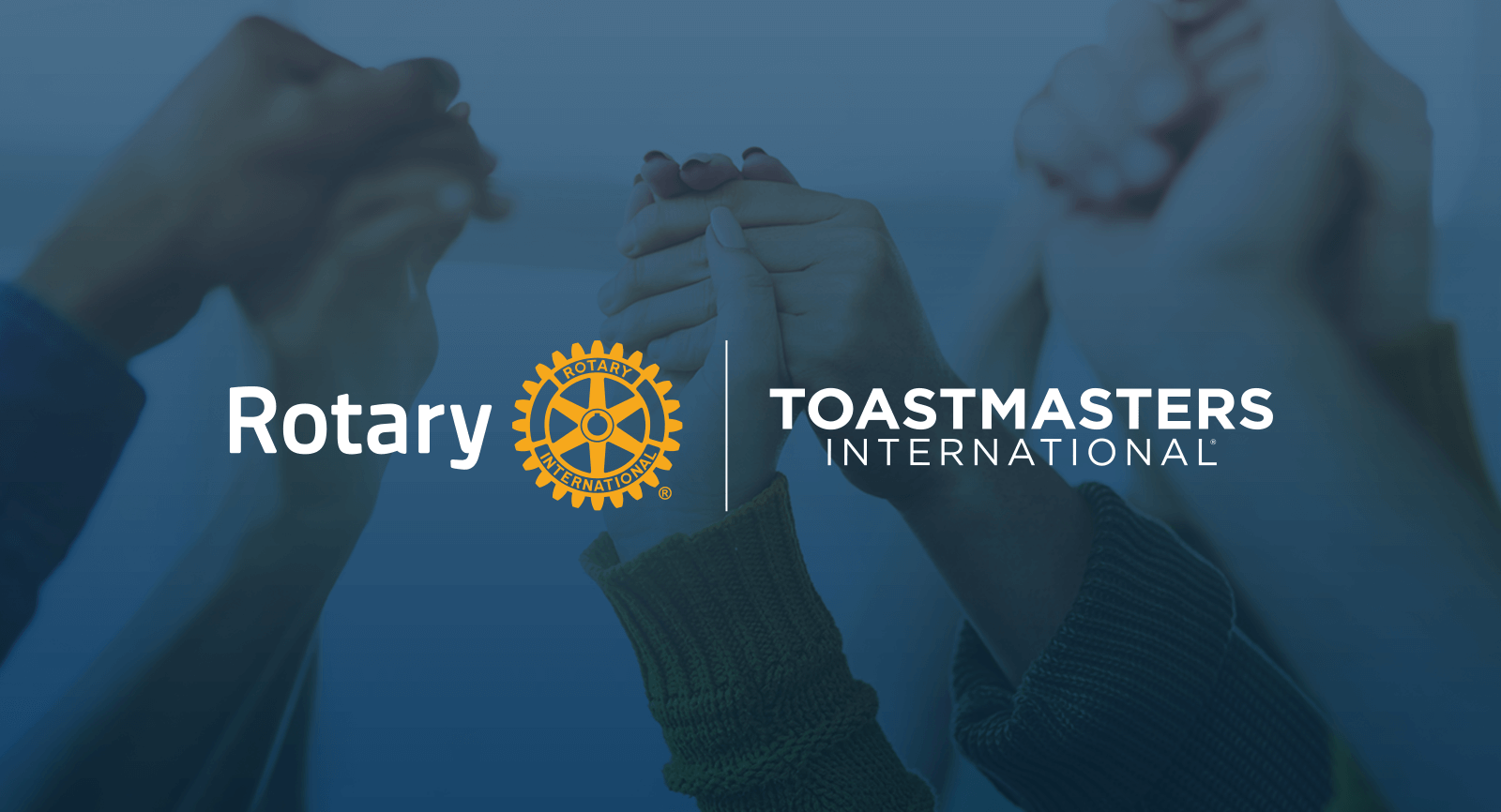 I moved to Massachusetts in the fall of 2015 and became a Rotarian a few months later. I was fortunate enough to become President of the Lynnfield Rotary, District Grant Subcommittee chair and an Assistant Governor. It became clear that for a Rotarian, public speaking was going to be an essential skill. I had been giving presentations in a variety of roles for many years. While feeling comfortable in front of a group, I did not have was the ability to get a focused evaluation of a speech. When Rotary announced an alliance with Toastmasters, I saw an opportunity to learn more about the art of public speaking and improve my overall technique. After a bit of research I joined The North Shore Toastmasters Club in Peabody.
I moved to Massachusetts in the fall of 2015 and became a Rotarian a few months later. I was fortunate enough to become President of the Lynnfield Rotary, District Grant Subcommittee chair and an Assistant Governor. It became clear that for a Rotarian, public speaking was going to be an essential skill. I had been giving presentations in a variety of roles for many years. While feeling comfortable in front of a group, I did not have was the ability to get a focused evaluation of a speech. When Rotary announced an alliance with Toastmasters, I saw an opportunity to learn more about the art of public speaking and improve my overall technique. After a bit of research I joined The North Shore Toastmasters Club in Peabody.My experience with Toastmasters was eye opening. After just a few meetings I quickly became aware that I had several opportunities to refine my presentations. These are not the type of things that I would have caught on my own. At Toastmasters I can speak in a safe environment getting valuable feedback from my club members. In a short period of time I already see a significant improvement.
Six months ago the thought of joining another organization never crossed my mind. I joined several groups in order to become more involved in my local community. Right now I am busier retired then when I was working. That is not a complaint because I enjoy all of these organizations and try to give back and contribute wherever possible. My time spent with Toastmasters has proved to be a valuable investment.
There are some similarities between Rotary and Toastmasters. Both clubs have been in existence for many years and have large international memberships. Rotary was founded to do public service and Toastmasters improves public speaking and leadership skills. There is little overlap between the organizations in terms of what they do. I found that I can participate in both with no conflicts.
There are several parts of a Toastmasters meeting that I find challenging but important. When you prepare and present a formal speech to the group, someone is assigned to be your evaluator. Once you finish you are given a detailed analysis of your content, vocabulary, bad habits (saying “ah” or “um” for example), contact with the audience and overall body language and style.
Members and guests are invited to participate in “Table Topics”. This is an exercise in thinking on your feet. The Table Topics Master for the evening offers a topic and you must speak for one to two minutes with no preparation. It sounds difficult but it is a necessary skill that must be developed. After a few sessions of this you are better equipped for interviews, department meetings, and a variety of social activities.
There are many roles for member participation at a Toastmaster meeting. These include Toastmaster of the Day, Ah-Counter, Grammarian, Timer, Evaluator, Table Topics Master and General Evaluator. Different people volunteer for each position at every meeting. This provides an opportunity to experience all of the roles over time.
One useful benefit is the ability to do a “test run” of an upcoming speech. I did this before a speech to my Rotary club and gained valuable feedback. I was able to apply the suggested changes before the actual presentation and it proved to be a worthwhile upgrade.
Finally I want to note that Toastmasters has a strong educational arm called Pathways. As a new member you select one of eleven paths depending on your chosen area of focus. It is a well-structured program to assist in your development. Several Toastmaster courses have been added to the myrotary.org training catalog and I urge you to try them.
I am pleased with my choice to join Toastmasters. It has enhanced my abilities as a speaker and it allows me to bring a Rotary view to my fellow Toastmaster members. I urge you to contact a local Toastmasters club, visit a meeting and see what they do first-hand. www.toastmasters.org will point you to the nearest club. You will find it to be a great experience. If we all improve our speaking skills it will benefit our individual club meetings, our public events, and our lives.
Ron Block
Lynnfield Rotary Club